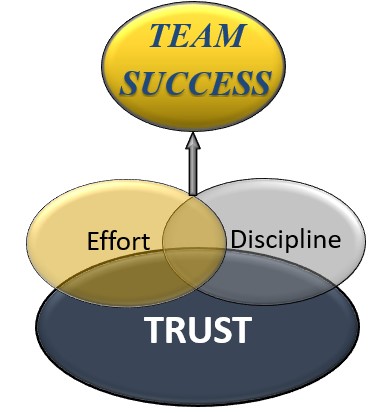Located about 40 miles to the northeast of New York City is one of America’s Richest Places, according to Bloomberg’s 2018 rankings. The smallest town on Connecticut’s “Gold Coast” Darien is also a town rich in tradition and success. The former summer vacation choice of steel magnate and philanthropist, Darien is also rich in something else: winning sports programs.
With state titles spread across the school’s athletic landscape, from numerous state titles and record winning streaks, girls field hockey, lacrosse and volleyball to boy’s track, football, and swim, the entire sports program is a powerhouse. And no sports team better exemplifies this Blue Wave of success than the Darien Boys Lacrosse Team.
In a sport ruled by private and prep academies, only one public school has completely dominated the national high school lacrosse rankings. Darien Connecticut. From 2015-2018 they won 76 consecutive games. Many of these games playing against some of the best teams in the country in Lacrosse hungry Connecticut. They have won 13 State Championships in the last 21 years. They were ranked #1 in the country for three straight seasons (14,15,16) and #2 in 2017.
At the helm of this success is longtime Coach Jeff Brameier.
| Year | Record | Ranking |
| 2007 | 20-3 | |
| 2008 | 23.1 | #23 National/#1 State |
| 2009 | 21-5 | #46 National/#5 State |
| 2010 | 19-3 | #27 National/#3 State |
| 2011 | 19-4 | #21 National/#2 State |
| 2012 | 17-2 | #21 National/#1 State |
| 2013 | 10-6 | #126 National/#7 State |
| 2014 | 14-1 | #1 National/#1 State |
| 2015 | 20-1 | #1 National/#1 State |
| 2016 | 24-0 | #1 National/#1 State |
| 2017 | 25-0 | #1 National/#1 State |
| 2018 | 23-1 | #13 National/# 2 State |
Tradition of Excellence

That is the one, well, three words used by Coach Jeff Brameier to describe the Darien High School Boys Lacrosse Culture. “That is what we try to preach and breed. Kids come into the program understanding what it was before they were here. Many of them have had role models here, then followed them through high school and onto college. Once you develop that tradition nobody wants to see it falter.
We had one bad year in 2013. Tt felt as if the bottom fell out. Then everybody became refocused. WE are very driven by the competitive nature of the town and the environment it creates.
We knew 2013 was an anomaly. We went 19-4 in 2011 and 17-2 in 2012 and won states, then went 10-6 in 2013. In communities like Darien, you will always have the “me-ism”. If they are not getting what they want, it can create an infectious negative attitude, especially when it comes to a team sport environment. In 2013, we had to get beyond the individual side, and put our focus back on the team first mentality. When the team plays well, the individual successes follow.
We try to keep as many kids involved and have them understand their roles. You are always going to have people who feel they should be playing ahead of someone else, but making those tough decisions is the role of the coach.
We also had great captains to pull us out of that. And perhaps a little bit of luck in that certain things fell into place. This team first mentality with strong leadership was our driving force to come back from that bad year. We used that as motivation.
Now we are back to having the bullseye on our chest again. Everybody brings their best against us. We were undefeated last year. The regular season is just a regular season. We have only had 2 completely undefeated seasons in my career (as of this interview).
This is my 32nd year running the program. We actually started the program. I grew up in Darien. Played football, basketball, and baseball. We didn’t have lacrosse. Started lacrosse her in 1982 as a club team. I had the privilege of being the head coach of both football, lacrosse, and swimming when we first started. For 9 years I had the privilege of being a head coach in 3 sports” shares Brameier.
Success Breeds Success
“Each year we have four out of state quality games” explains Brameier. “I like those coaches and they like me, so we schedule the games. We have a league schedule of that consists of 11 required games, then one open date. In Connecticut there are 4 very good teams. On any given day those teams could beat each other.
Public school lacrosse in Connecticut is similar to public school hockey in Minnesota and public school football in Texas. In any given year, several public school teams compete in the national rankings against private and prep schools from across the country. “Many of the towns around Darien have excellent public school systems” explains Brameier.” Parents move into those towns for the education. The education is first rate. Here, parents don’t need to send their kid to a private school for a quality education. Oftentimes towns that are driven by education are also driven athletically. Success breeds success. Darien breeds success in all sports. Every girls team we have are state champions. All sports are winning league championships here.
A track runner from Darien just won the Penn Relay 3k. Our town is very, very interested in being successful in everything they do. There is a lot of drive to do what it takes to succeed. We have the finances to support the athletics from the outside, not just the inside. We make sure we as coaches have what the program needs. The parents make sure their sons and daughters have the outside opportunities needed to best help them get into the college programs.”
Lacrosse Community
“We are close enough to Westchester and Long Island, where we have gotten a little bit of transition of people moving from those towns to Connecticut” reveals Brameier. “Adults from those communities wanted to bring lacrosse with them to Connecticut. The first teams were in the early 70’s. We didn’t get into the fray until 84. It took us about 7-8 years until we could compete with Canaan and Wilton. Then it became the big 3, with us being one of them.
Now Lacrosse is the fastest growing sport in the country. Lacrosse is an expensive sport to play. Kids are putting a lot of money out there on equipment, camps, clinics, and club, etc. Well to do communities that have a lot of money give these lacrosse kids the wherewithal to become successful. That is one of the reasons why so many well-off towns win state titles.
We will see a few kids go off to prep schools but, in general, we hold on to a very high percentage of kids. We are a community of parents that love having their kids around and want to share in their kids’ school and sport life. When they send them off to private school, it makes it much harder to share in their lives.
We will lose kids who either, have parents who were already private school believers, or have the parents who already start to evaluate the pecking order their kids are in on the lacrosse program. This can occur as early as 8th grade or freshman year.
Private schools are allowing these kids to repeat their freshman year. From an athletic stand point, this can be a win for both the kid and the school as it gives the kid another year of physical maturity and the school can field a more competitive program. When we scrimmage against a lot of the prep schools, we are often playing against kids a year or two older than our kids. Originally sport was designed as an addition to the education process. Now, for some, it is a primary drive.”
Building a Winning Culture, Leading by Example
According to the Coach “There is a combination of things that build positive culture. As a coach, you never want to feel like you have been outcoached. Players never want to feel like they were out worked. The kids know I work as hard as possible to give them every opportunity to provide them a chance to win. You definitely try to instill a positive work ethic in the kids. It must come from you, the coach. You have to show it. I am the first one here, and the last one to leave. The kids seeing this have to know I am working.
I expect them to be as fair to me as I am fair to them. Ever since I got out of college, I have been that competitive kid that wants to succeed and out coach the opponent. I am always looking for ways to improve. Scouting reports, breaking down film, etc. Many kids come back from college and tell me they were more prepared for games in high school than they were in college.
It is a tremendous responsibility as a coach to mold these young men. I have reaped the benefits of success through their successes. Kids are getting into schools they may never have gotten into due to their work ethic and success in lacrosse.
We have the privilege of working with a lot of handicap kids as well. This is incredibly fulfilling. The value of sport to any kids is tremendous. I also love and greatly appreciate the fact that now I am coaching the kids of kids that I have coached. All of this is incredibly rewarding.
My senior year in high school we were allowed an independent study project. I worked for a school for kids with integration issues. Two years into teaching after college, a group of handicap kids showed up at the junior high I was teaching at. I asked them why they weren’t getting PE and then created an adaptive physical education program.
I have always had adaptive physical education be a part of my role here in Darien. I made sure this was offered at all the schools. It just became another part of my education passion and drive. I wanted these kids to have a great experience, one that brought them tremendous satisfaction.
Along those same lines, I feel lacrosse should have a bigger passion for trying to involve the inner city kids. It is such an expensive sport and we need communities to work on bringing it to the inner cities. We can help get a program started, but it is hard to continue. We have had equipment drives and clinics for the inner city kids but have realized it is a hard process to maintain.
We have former players in the service and other places who keep in touch with me from around the country. It is an awesome relationship. We retired a kid’s jersey back in 1992 because he fought a battle with cancer. He was coming back from Arizona for a big game and we unretired it for this special game.”
Trust

“Trust is give and take” shares Brameier. “We have all had mentors, teachers, and coaches that we have admired and have inspired us. Then we have also had the complete opposite. You learn qualities and approaches from both of those what you want and what you don’t want to instill in your students, athletes, and coaches. There are things that don’t usually breed success. The coach that tries to just break down a kid, thinking it will make him harder and tougher. This approach may not always work. Coaches should trust and understand that the kids are not trying to fail and vice versa.
I can be tough, but I also do have a soft side. I am going to be a best friend but will help them any way can. I will give you effort if you give me the effort back.
Part of what triggered lacrosse success here was development. There was no youth program. We started on that, which then fostered success. There is great relationship between the high school and youth programs.”
Evolution of Success
“From my perspective it was more of a progression than a defining moment” recalls Brameier. “There were clearly times in my career, that as a young coach, I had to realize this generation of kids may not handle the same style of coaching that I was exposed to. We cannot make kids so afraid to make mistakes. They can’t be afraid of you as a coach. You have expectations as a coach, but they need the freedom to perform and if they make a mistake, it is not going to be the end of the world. This goes a long way in my relationship with the team. I let them know this is their team.”
Goal Setting
Coach Brameier reveals “I don’t have to set team goals, they are already set. The expectation is we try to go undefeated and we expect to end season in the state championship game. I think if you don’t believe it is a realistic goal, then you are not truly going after it. We believe it is a realistic goal and expectation to go undefeated.
Process based goals can be set by the kids. I try to make the kids responsible for their own goals. We want them to write their own goals. Every kid is going to tell you they want to start. We have 100 kids in the program, and everybody thinks they can start. But what are they doing to get there?”
Cultivating the Athlete and Person
“I think it is a mix of all factors” shares Coach Brameier. “I talk about individual skill development. We have to drill skills constantly as we are a skill oriented sport. You have to practice technique, if you don’t correct mistakes, they are going to continue making them.
I am a huge believer in understanding the sport. Lacrosse IQ. You won’t be able to react and respond the way you should on the field without this. Flow, slide packages, taking the individual side and bringing it back to the team. If you don’t have a strong Lacrosse IQ you can be a good individual player, but not a great teammate.
We have community service projects, team dinners, team building activities. Most of these kids grew up together. It is not hard to build the bond; we just have to build the team goals. We have to take out the selfish individual side. We are a community, we have team functions, parent player meetings, individually and collectively.
I won’t meet with a parent by his or herself. Meetings are always with the player and parent. This approach can and has made some parents uncomfortable. It may not always work, but it does help. There are always going to be people behind the scenes questioning who plays, strategies, etc. I tell all of them I am way to competitive. The kids get a daily opportunity to prove you wrong every day in practice. The kids see it in practice, they are given the opportunity to get better every day.
I have a pulse on the kids from freshman year on up. We move kids from freshman up to varsity just to practice with us. There are 5-10 kids from freshman practicing with me at varsity. We will have a group of 40-50 kids in practice with me. This allows me to have a pulse on everything in the program. Sometimes this can create a negative parental mindset of you bumped a freshman up over my senior kid. It can be infectious in a negative way and the younger kids can then start to gain a sense of entitlement.
Dealing with entitlement can be hard. We have a lot of that in our community. A lot them have never been reprimanded. You try to be fair. We create the expectations that everybody is getting an opportunity. Our practices are constant. There is very little time for a kid to show me he is not working or be evaluated. There are a lot of moving parts during every practice.”
Players Make a Depth Chart
“If you think you belong here, you have a chance every day in practice on the field to earn it. Show me that you are willing to earn it. We have a whole staff here that evaluates you. We also put some of the onus on the players. We have the players do a depth chart. They rank the players and their positions. This is for the coaches. This gives the kids a sense of ownership. When we post the starting lineup for our first scrimmage, we tell them this is who you chose. It is similar to picking teams for a pick-up game. The kids know who is good.
The kids are usually close to being spot on. Then there are those that have misconceptions of their own ability. They think they are better than they are” expresses Brameier.
Expectations and Consequences
“On the field this is situational” explains Brameier. “I am strict but not strict. In my world there are so many things that get in the way. If I become a stickler for every point of emphasis, you can get yourself stuck. Sitting out a star player for games can be bad. I am honest, I am very flexible, but do have expectations for things including showing up on time, getting academic work done, etc. A player can miss the first hour of practice with a note from their teacher. I am okay with this as school work needs to be a priority.
I find in this day in age, kids miss more practice time because of being sick. I never miss a day of school, work, or practice from being sick. You just have to tell the kids to feel better. We take a realistic approach. Okay, you are sick, it is okay if you miss practice. We can’t sweat the small stuff.”
Mental Toughness
“I call it learning to play with an edge” shares Brameier. “Some guys are physically tough and reckless with their body. This type of physicality is either there or not at an early age. You can improve it by teaching the game, working out, challenging them. If you want to play you must be able to handle the contact.
Mental toughness. You are battling for 20-30 seconds. All you have to do is fight for 20-30 seconds. Give it all you have for those 20-30 seconds. Our sport is a game, but not a race. It is like a track race in that I have to run hard for a 100 meter dash. We are more of a constancy. Similar to hockey. Our game is very similar to basketball and hockey. We can’t look to far ahead and can’t look back. We have to be present in the moment.”
Lax Hawks

“We have this spiritual image of the lax hawks. These are a group of hawks that fly around our field. We believe they are there supporting us. It is amazing. We had a big game against Ridgefield we were losing 8-4. The Lax hawk came out. The bench went nuts. We then went on a six goal run. I had a smile on my face as soon as I saw the hawk. We talk about how Lacrosse is the creator’s game. Some great stories about animals and the hawk is one of those animals we talk about” shares Brameier.
Values
“Number one is respect the game, respect your players, your teammates, coaches, your community” reveals Brameier. “You are a huge role model. You have been given a gift to play a great sport. This is a privilege. A gift to carry on the tradition. You have an expectation to carry on that tradition. When we get to the state tournament, I bring out the pictures and hardware from years before. This builds a respect for the tradition and the work that goes into it.
I am not a reader. I read articles and clips. I like videos. I like movies. Things that show sport and their great accomplishment. The Bob Ladouceur movie. He truly had a passion for his players, family, sport, and what it gave to the community. What he did is what we all hope we are doing. It is fun to win, but sometimes there is a value in losing. Losing that streak was hard, we had 25 consecutive years, from 88 to 2012, in the state final four, in 2013, we, me and the team felt we had let everybody down. I got beat by my son. I walked in the locker room and said I think I failed you guys because I didn’t prepare you well. Then good things come out of bad things. I was able to see my son and his team win a state championship. We came back the next year more motivated than ever. Self-reflection is an important thing in the coaching process and as an athlete.”
For more Building A Winning Culture in Team Sports be sure to check out our other blog posts or pick up a copy of the book Building A Winning Culture in High School Sports….and Beyond.



